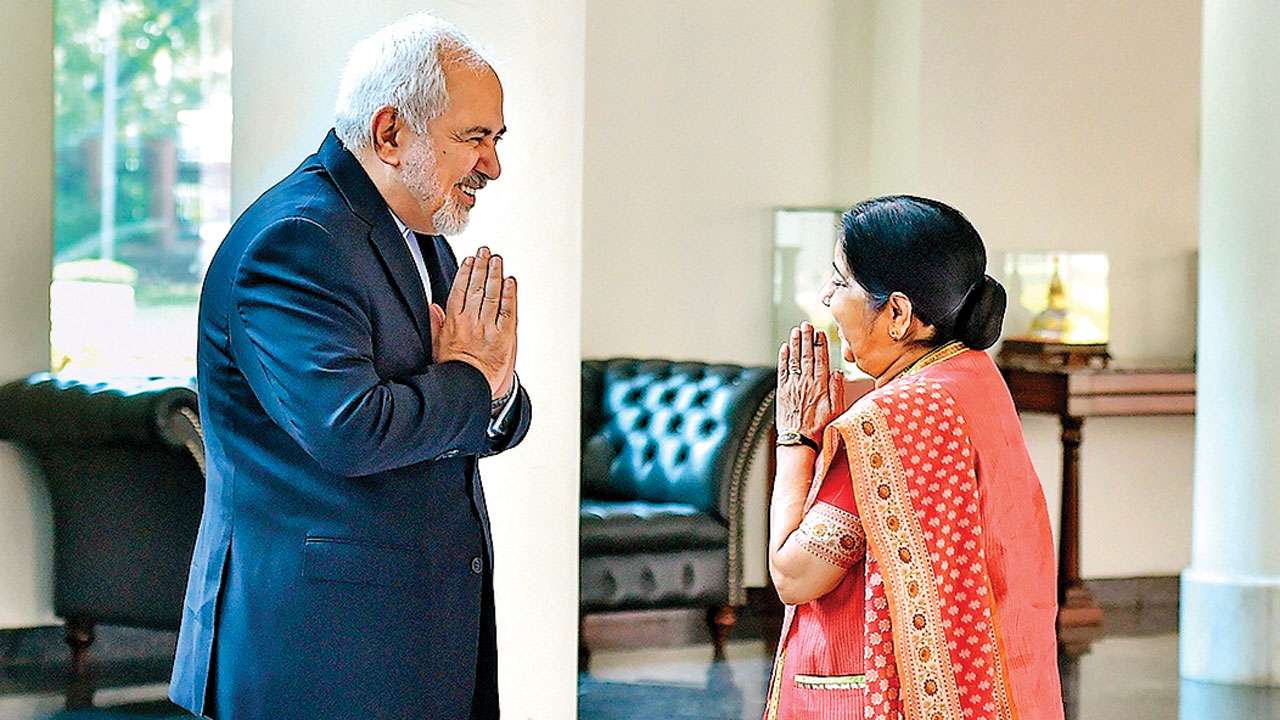
India has done what any other country in election mode would have done — postpone a very sticky decision for another day. This week, Iranian foreign minister Mohammad Javad Zarif came to New Delhi on an unscheduled visit with the most onerous task at hand, asking for Indian support against the backdrop of US-Iran tensions over the Joint Comprehensive Plan of Action (JCPOA) or the Iranian nuclear deal. When Zarif raised the subject of the purchase of Iranian oil, he was told by his Indian counterpart Sushma Swaraj that a decision would be taken once the general elections were through, keeping in mind the country’s “commercial considerations, energy security and economic interests”. In reality though, India is caught between a rock and a hard place.
Tehran is among New Delhi’s top three energy suppliers, providing 23.6 million tonnes of oil last year, or about 10 per cent of the country’s energy needs. The sanctions were imposed after President Donald Trump unilaterally withdrew the US from the 2015 nuclear deal between Iran and the world powers. The unilateral — and some would say arbitrary — US measure will primarily affect five major oil importers: China, India, Japan, South Korea and Turkey. While India will find it difficult to offend President Trump by not following the US diktat, it is likely to face a huge energy crisis if it stops oil import from Iran. This country remains one of the main importers of oil from Iran behind China.
Washington has made it clear that oil imports of Indian companies, like the others, go to zero. The Americans also announced that no more sanction waivers would be granted after the current batch expired on May 2, choking off Iranian income, pegged at more than $50 billion a year. The US administration had granted eight waivers when it re-imposed sanctions on Iran in November. The waivers were issued, in part, to give those countries more time to find alternate energy sources, but also to prevent a shock to global oil markets from the sudden removal of Iranian crude. If India agrees to the US ban, New Delhi may not have an option but to hike prices enormously.
During 2016-17, India imported oil at $47.6 a barrel. At current prices, India will have to spend at least $70 per barrel, which implies an annual outgo of an extra $30 billion. It will damage the country’s trade balance and may force the government to bring back subsidies on petroleum products, such as diesel and petrol, as it happened from 2004-14. This can also throw India’s fiscal and trade deficit out of gear. The visiting dignitary from Iran told his hosts that the outreach to India was part of Iran’s consultations with key countries — including Russia, China, Turkmenistan and Iraq — over the past few days. India told its guest that New Delhi would like all parties to the JCPOA to continue to fulfil their commitments and engage constructively and resolve issues peacefully through dialogue. That is the best India could have done under the prevailing circumstances.